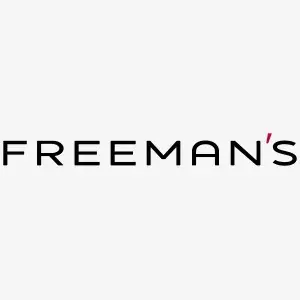







An important Imperial pale celadon-white jade “Taishang Huangdi zhi bao” seal 珍罕乾隆“太上皇帝之宝“玉玺 Circa 约 1795
Winning Bid: $378,000
An important Imperial pale celadon-white jade “Taishang Huangdi zhi bao” seal 珍罕乾隆“太上皇帝之宝“玉玺 Circa 约 1795:
***PLEASE NOTE, THIS IS A PREMIUM LOT. A DEPOSIT IS REQUIRED TO PARTICIPATE IN BIDDING ON THIS LOT. PLEASE CONTACT CLIENT SERVICES FOR FURTHER DETAILS.***
***请注意,本件为高价拍品,需缴付押金方可竞投。请联系客服以获取更多信息。*
Of square section, the upper face finely carved with three sinuous qilong, the largest qilong above and facing the two smaller as if in conversation, all elegantly entwined among cloud scrolls, the seal face carved in high relief with six characters in seal script: “Tai Shang Huang Di Zhi Bao”, the stone of a very luminous and even pale celadon-white tone, with a very fine polish.
(H: 2 1/2, W: 1 13/16, D: 1 13/16 in.)
Qty: (1)
Private collection
Thence by descent
Footnote:
In 1772, the Qianlong Emperor of China announced he had made a vow to voluntarily abdicate the throne to his heir in 1795 if he was blessed with a reign of 60 years. Remarkably, he reached this milestone, fulfilled his vow and announced that he would designate his fifteenth son, prince Jia, as his successor, and the following year would be the first of the new Emperor’s reign.
After his retirement, the “Emperor Emeritus”, commissioned approximately 20 “Taishang Huangdi” seals. These seals were executed in a variety of sizes, forms, and materials. Freeman’s is honored to present a jade seal from this select group, consigned by descendants of the original collector.
A larger white jade seal from this group, sold at Christie’s Hong Kong, November 26, 2007, lot 1861, was accompanied by a lengthy essay by Guo Fuxiang, Associate Researcher, Department of Palace History, Palace Museum, Beijing, discussing the seals commissioned by the Qianlong Emperor to reflect his new title of “Taishang Huangdi”, and this title’s wider context in Chinese history. Guo discusses the origins of “Taishang Huang”, loosely translated as “…the noblest man in the world who is more virtuous than the Emperor”. Guo further notes this title was conferred posthumously by the first Emperor of unified China, Qin Shihuangdi, on his father as a mark of filial respect. The title was also conferred on the father of Liu Bang, first Emperor of the Han dynasty. The Qianlong emperor was the only ruler of the Qing dynasty to bear this title.
An impression of the present seal is recorded in Gugong Bowuyuan cang, “Qing dai di hou xi yinpu” (“The Seals of the Qing Dynasty Emperors and Empresses”), vol. 6, Qianlong II, p. 178. In addition, the fine, luminous pale celadon-white jade accords perfectly with the material known to have been utilized for that seal: “qingbai yu” or pale greenish-white jade. The carving and polish are exceedingly fine, as would be expected of a work commissioned by the Qianlong emperor, a connoisseur of jades. It is an exemplary example of Chinese jade carving from this period.
The upper face is gracefully sculpted with a sinuous qilong and two smaller qilong among scrolling waves or clouds, likely referring to the Chinese saying “Canlong jiaozi”, which may be translated as “The Eastern [blue] dragon teaching his son[s]”, implying not only the importance of instructing the young, but also bringing up one’s descendants to succeed in court or higher office. This expression would certainly hold relevance for a powerful retired Emperor benevolently extending influence over his son, a reigning Emperor. For similar Imperial seals portraying sinuous qilong among scrolled waves or clouds, compare the three examples sold at Sotheby’s, Hong Kong: a seal with the face carved for the Yongzheng Emperor, sold April 7, 2015, lot 102; a seal for the Qianlong Emperor, also sold April, 2015, lot 3647; and another seal for the Qianlong Emperor, sold October 9, 2012, lot 3006.
乾隆三十七年暨公元1772年,乾隆皇帝昭告天下将于乾隆六十年暨公元1795年退位,以彰其功。及是时,乾隆皇帝不失允诺,让位于十五皇子永琰暨嘉庆皇帝,并于次年变更年号。
退位之后,乾隆太上皇命匠人御制“太上皇帝之宝”印文玉玺约二十方,大小,形制,题材,用料,亦各有千秋。是次拍卖,福礼蔓拍卖行荣耀呈现由故人旧藏家族传承的其中一方遗珍。此组玺印中的一例体型较大白玉玉玺于2007年11月26日经香港佳士得售出,并撰有北京故宫历史研究员郭福祥的长篇文章。文章中,郭福祥专登研讨分析了此类玉玺反映了乾隆皇帝的新称谓“太上皇帝”与中国史观的深远意义。在文章中他提到了“太上皇帝”一词的出处,此处翻译为”比帝王德行更高者”,更探讨了此称谓的出处来自首位一统中国的秦始皇帝,为其父亲初创此尊称,以表孝悌,后世汉高祖刘邦亦为其父亲冠以此称谓。纵览清朝,乾隆皇帝乃唯一一位拥有此称谓的皇帝。
是次拍卖的玉玺印面收录于故宫博物院藏所出版的“清代帝后玺印谱”第六册,乾隆卷二,第178页;而该印玺温润晶莹的青白色玉料材质,亦与传世记录中雕刻此枚玉玺所用的“青白玉”别无二致。仔细观察其雕刻工艺鬼斧神工,打磨抛光细致入微,亦符合乾隆皇帝作为第一玉器鉴赏大家的宫廷御用定制规格。应为清乾隆晚期宫廷玉器代表作无疑。是枚玉玺正上方雕刻一盘踞大螭龙,佐以两只小螭龙隐现于波涛云雾之中。该风格应引申为中国传统题材苍龙教子,意在突显教诲后世的重要性,并大有望子成龙之深切期盼。不难推测,是枚玉玺的题材在彰显了乾隆皇帝至高无上的权威之余,更寄托了他对于继任者嘉庆皇帝的殷切希望。一枚相似题材为螭龙云海的雍正玉玺于2015年4月7日经香港苏富比售出拍品编号102;另有两例乾隆玉玺分别售于2015年4月,拍品编号2647,和2012年10月9日,拍品编号3006。

